April 2012
Mary Tracy, President, Scenic America:
Do you think Portland is losing revenue by not having billboards?
“No, the total opposite,” Mary Tracy, president of Scenic America, says. “I think Maine ‘s attracting so much more interest in tourism by not having billboards. Last year when they tried to change the law banning billboards, the tourism and travel agency reps were first in line to stop it. Billboard revenue is chump change compared to what you’re selling, which is the beauty of Maine.
“There are 10 principles in rating a stock. Clear Channel and Lamar Advertising, two of the biggest names in outdoor advertising, failed eight of them last year. Their stocks are goingdown. The only place billboard companies have sway is in legislation because they’re very generous donors.
“In Philadelphia, a study done by urban planner Jonathan Snyder found that homes located within 500 feet of a billboard were worth almost $31,000 less at time of sale than homes located further away. That doesn’t sound worth it for any homeowner.
“In 1965, lobbyists undermined elements of the Highway Beautification Act and carved out sections that would’ve imposed the same strict regulations on industrial and commercial areas, which allowed them more freedom to put up billboards in those areas. The loophole caused all kinds of visual harm in rural areas, too.
What about having billboards in the downtown area?
“City dwellers aren’t immune to ugliness, and they don’t need a giant billboard to tell them what’s right down the street. Our downtowns aren’t areas we should trash up with billboard lights… Then they’ll just look like any other place. Portland is beautiful because it doesn’t look like every other downtown. I admire Maine for that, I think it’s one of America’s greatest treasures.
Marion Fuller Brown was appointed to the White House Conference on Natural Beauty and she brought the same values there as she did as a state legislator in Maine. After the Highway Beautification Act, she had the foresight to get rid of billboards in a time when you still could get rid of them.”
Robert Cott, President, CD&M Communications:
“I used to work for Donnelly Outdoor Advertising back when billboards were still around in Maine. The first thing I know for sure is that billboards do work.
“I remember we put up a 24-sheet poster for Bayley’s Campground in Scarborough across from Anjon’s on Route 1, and they knew within hours that the sign was working because they were getting more customers. When the sign came down, once again they knew it had worked because the stream of tourists slowed down. We put up a billboard for Montsweag Farm Restaurant and, honestly, it put them on the map. Billboards are very effective advertising tools if used correctly.
“They’re very helpful for motorists, letting them know which exit to take to get somewhere. In a lot of states, the billboards are as much directions as they are advertisements.
“The huge billboards on the roadside… I understand why those came down. They were eyesores. Having billboards in the city isn’t as bad or as distracting. If the city owns the billboards I suppose it’s a potential source of revenue, but say they own 14 billboards and charge $1,000 each for advertisers… That’s not a huge amount of revenue for a city.
“If you drive through Florida, there are billboards everywhere; one of the things that makes Maine distinct is that it doesn’t have billboards, which is nice. I have mixed feelings about it because it can potentially help businesses. But at the same time, part of the allure is that there aren’t billboards everywhere you look.”

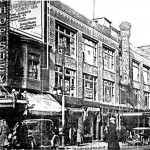
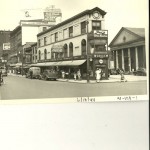
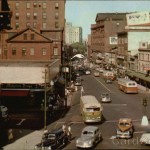
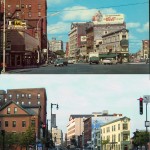
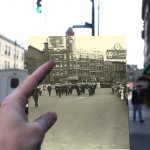


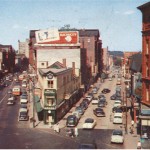
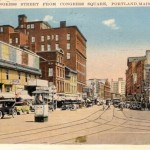





0 Comments